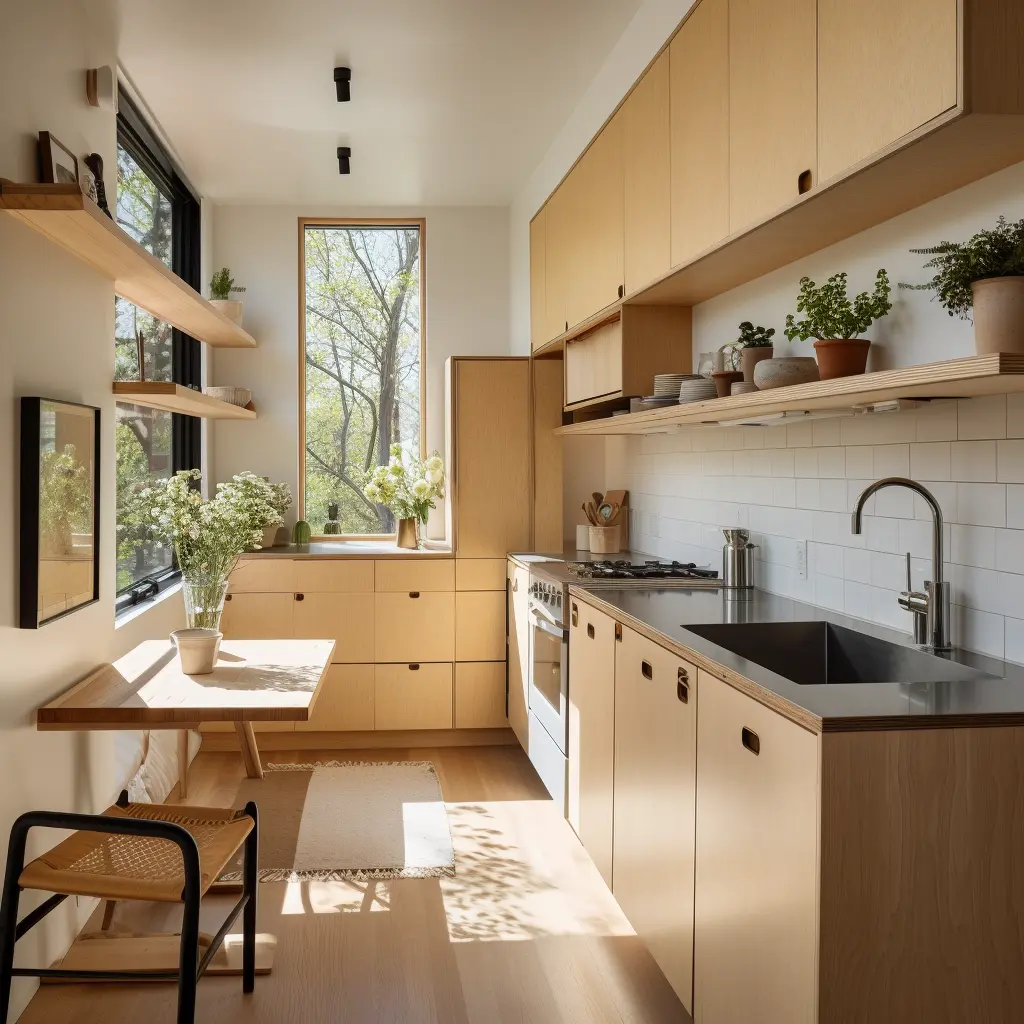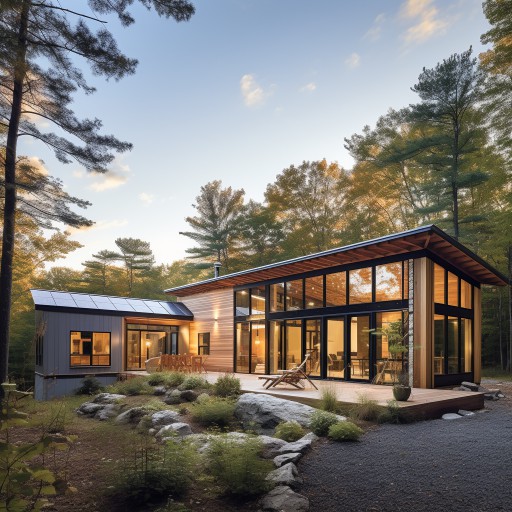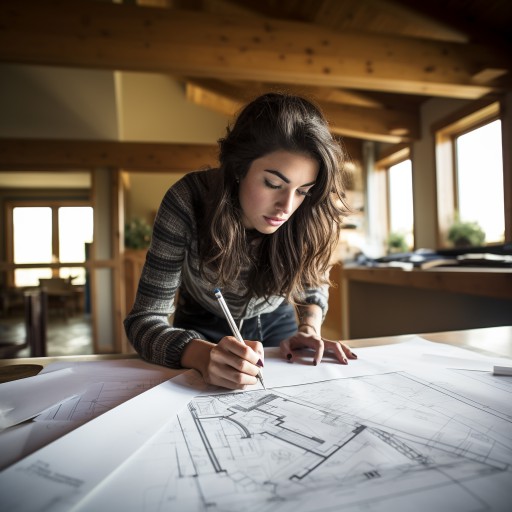10 Things to Know Before Building A House

co-founder
- 1. Plan Your Budget Carefully
- 2. Invest Time in Finding the Right Builder
- 3.Prioritize Functionality in Your Floor Plan
- 4. Don't Skimp on Energy Efficiency
- 5. Plan for Future Expansion
- 6. Understand the Importance of Good Communication
- 7. Factor in the Time Required for Permits
- 8. Choose Materials Wisely
- 9. Be Prepared for Delays
- 10. Don't Overlook the Importance of Site Selection
Building a house is an exciting yet challenging endeavor. To help you navigate this journey, we've compiled a list of 10 things you'll wish you knew before building a house, providing valuable insights to save you time, money, and stress.
1. Plan Your Budget Carefully
When budgeting for your new home, consider not only the construction costs but also additional expenses such as land purchase, permits, and utility connections. Be prepared for unforeseen costs, and set aside a contingency fund of at least 10% to 15% of your overall budget. Research financing options early and get pre-approved for a loan to make the process smoother.
2. Invest Time in Finding the Right Builder
Take time to research and interview potential builders. Look for experience, good communication skills, and a solid reputation. Ask for references and visit their past projects to ensure their work aligns with your expectations. Choosing the right builder can make a significant difference in the quality, timeline, and overall satisfaction of your home building experience.
3.Prioritize Functionality in Your Floor Plan
While aesthetics are important, prioritize functionality when designing your floor plan. Consider your family's needs, lifestyle, and future changes. Analyze traffic flow, room placement, and storage options to create a comfortable and efficient living space. Be cautious of trends and focus on long-term practicality.
4. Don't Skimp on Energy Efficiency
Investing in energy-efficient features like quality insulation, energy-efficient windows, and solar panels can save you money in the long run. These features not only reduce energy bills but also improve comfort and contribute to a greener environment. Consult with your builder and architect to identify the best solutions for your home.
5. Plan for Future Expansion
Consider potential future needs, such as a growing family or aging in place. Design your house with the flexibility for future expansion or modification, like adding rooms or creating an open floor plan. This foresight can save you money and inconvenience later on.
6. Understand the Importance of Good Communication
Establish clear communication channels with your builder, architect, and other professionals involved in your project. Regular updates and meetings can help prevent misunderstandings, delays, and costly mistakes. Stay involved in the decision-making process and voice your concerns or questions promptly.
7. Factor in the Time Required for Permits
Acquiring permits can be a time-consuming process. Factor this into your timeline and be prepared for potential delays. Work closely with your architect and builder to ensure your plans comply with local regulations and zoning requirements, which can expedite the permitting process.
8. Choose Materials Wisely
Selecting the right materials for your home is crucial for durability, maintenance, and aesthetics. Research the pros and cons of different materials, and consult with your builder and architect to make informed decisions. Balance initial costs with long-term benefits, such as energy efficiency, durability, and low maintenance requirements.
9. Be Prepared for Delays
Despite meticulous planning, unexpected delays can occur during the home building process. Factors such as weather, material shortages, and permit issues can impact your timeline. Be patient and maintain open communication with your builder to stay informed and manage any setbacks effectively.
10. Don't Overlook the Importance of Site Selection
Before purchasing land for your new home, research the location thoroughly. Consider factors such as access to utilities, schools, transportation, and amenities. Investigate any potential challenges related to the topography, soil conditions, and drainage. An ideal site can save you time, money, and frustration during the construction process.
Building a house can be a rewarding experience when armed with the right knowledge. By considering these 10 things you wish you knew before building a house, you can make informed decisions, avoid common pitfalls, and enjoy a smoother home building process, ultimately creating the perfect space for you and your family.

Renovate with EcoHome
EcoHome empowers homeowners to confidently build healthy and comfortable homes for a fair price.
Sign UpLocations View All →
NY
- Albany
- Binghamton
- Buffalo
- Esopus
- Freeport
- Hempstead
- Highland
- Kingston
- Long Beach
- Marlboro
- Mount Vernon
- New Paltz
- New Rochelle
- New York City
- Niagara Falls
- North Tonawanda
- Olivebridge
- Plattekill
- Rochester
- Rome
- Saugerties
- Schenectady
- Shandaken
- Syracuse
- Troy
- Utica
- Valley Stream
- Wallkill
- Woodstock
- Yonkers
NJ
- Bayonne
- Brick
- Camden
- Cherry Hill
- Clifton
- East Orange
- Edison
- Elizabeth
- Jersey City
- Lakewood
- Middletown
- Newark
- Old Bridge
- Passaic
- Paterson
- Toms River
- Trenton
- Union City
- Woodbridge
CT
PA
- Allentown
- Altoona
- Bethel Park
- Bethlehem
- Chester
- Easton
- Harrisburg
- Hazleton
- Lancaster
- Lebanon
- Monroeville
- Philadelphia
- Pittsburgh
- Reading
- Scranton
- Wayne
- Wilkes Barre
MD
- Abingdon
- Baltimore
- Bethesda
- Bowie
- Columbia
- Dundalk
- Ellicott City
- Frederick
- Gaithersburg
- Germantown
- Glen Burnie
- Potomac
- Rockville
- Severn
- Silver Spring
- Towson
- Waldorf



